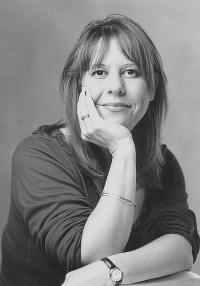 THUNDER BAY – Special to NNL – They may be closer to the North Pole, but the aboriginal people of Northern Ontario have a much harder time grabbing Santa’s attention, apparently, than those of us in the South.
THUNDER BAY – Special to NNL – They may be closer to the North Pole, but the aboriginal people of Northern Ontario have a much harder time grabbing Santa’s attention, apparently, than those of us in the South.
It’s not that they’re being unrealistically desirous of swimming pools and ponies. On the contrary, their wish lists tend to be almost heartbreakingly humble. The children of Pikangikum First Nation, an Ojibway reserve a few hundred kilometres north of Thunder Bay, told youth-engagement workers for the North-South Partnership for Children that they longed for running tap water.
Can they garner our goodwill and understanding? That would be on their wish list. So would a desire for simple and practical help. I’ve met Oji-Cree people who would really just like to know how to operate a buzz saw, after spending the past few millennia hunting and trapping in the boreal forest before being catapulted into residential schools and then bounced back into the birch trees.
They know about Jesus, but they have no clue how to insulate prefab modular housing units shipped up by a federal bureaucracy that prohibits them from logging on “Crown land.”
The discussion shouldn’t be about how we “throw all this money at them,” but rather how we don’t toss over anything else, such as skills training or adequate education or moral support or even a simple, listening curiosity about their wild sense of disorientation.
Do you know how to operate a municipal sewage system for a town of 2,000? No? Well, why the heck would they?
When I visited the fly-in communities of Summer Beaver, Big Trout Lake and Sandy Lake in the summer of 2010, I met elders who could fashion a slingshot and bring down a ptarmigan in the time it takes you to check your e-mail, but they didn’t know the significance of “sell before” dates on the cans of peas and stew they were stocking in their one store.
We ask them to “get over the past” and join modern Canada, but we haven’t invested a moment of time into showing them how.
When remote reserves slide into crisis because of chronic poverty and a lack of training, Canadians respond by rearing up into high intellectual dudgeon about the “Indian problem.” The chiefs are corrupt! It’s the fault of the feds! The provinces are to blame!
But who, simply, goes up to a community like Attawapiskat and offers to help build a playground? (Answer: a middle-school boy from Niagara Falls, Ont., named Wesley Prankard.)
It has only recently dawned on Canadian non-governmental organizations, philanthropists, private citizens and Rotarians that the kind of work they do in Haiti and Sierra Leone is equally valued in our own backyard.
Some citizens in Guelph, Ont., for example, have dubbed themselves the Friends of Webequie, and travel several times a year to that Northern Ontario community to help rebuild lost skills. They bring seeds for potatoes, pumpkins and squash, and teach the people how to plant. They repair houses and winterize them. They help find solutions to prescription-drug addiction, which is rampant across North America but for which there are no rehab resources on northern reserves.
A tiny NGO called Speroway works specifically with the community of Mishkeegogamang, running summer camps and building bunk beds to offset overcrowding.
Right to Play, which usually runs sports programs in Third World refugee camps, is now working in some of the communities at the request of the young people, who crave recreational activities.
These are practical, scalable interventions that don’t require an entire constitutional debate.
A more ambitious wish on the native Christmas list would be to stop being smothered in insane red tape. Chief Donny Morris of Big Trout Lake dreams of a sawmill. He wants to be able to cull lumber from his traditional territory and build log homes.
But he can’t to that.
He is flailing within the netted confines of the Indian Act. His people cannot own mortgages, they can’t use local resources, they cannot stand on their heads without permission from three departments plus seven additional signatures on Parliament Hill.
It is this incessant bureaucratic hampering that has brought a once self-reliant people to their knees. We can leave them there, out of sight and out of mind, sleeping in shifts in mouldy homes while we engage in grandiose philosophical discourse. Or we can follow a kid’s example and, like Wesley Prankard, just offer to lend a hand.
Patricia Pearson
Patricia Pearson is a journalist and an adviser to the North-South Partnership for Children, a coalition of NGOs, private companies, universities and individuals working with Ojibway and Cree communities.
Photo: Russell Monk
Article (c) Patricia Pearson – Republished with permission.

